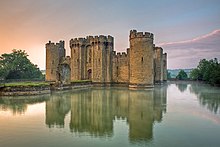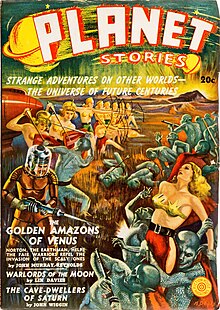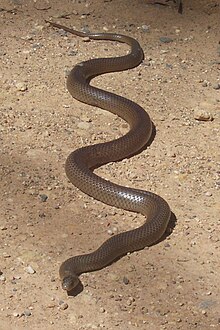Portal:Science
Science portal

Science is a systematic discipline that builds and organises knowledge in the form of testable hypotheses and predictions about the universe. Modern science is typically divided into two or three major branches: the natural sciences (e.g., physics, chemistry, and biology), which study the physical world; and the behavioural sciences (e.g., economics, psychology, and sociology), which study individuals and societies. The formal sciences (e.g., logic, mathematics, and theoretical computer science), which study formal systems governed by axioms and rules, are sometimes described as being sciences as well; however, they are often regarded as a separate field because they rely on deductive reasoning instead of the scientific method or empirical evidence as their main methodology. Applied sciences are disciplines that use scientific knowledge for practical purposes, such as engineering and medicine. (Full article...)
Featured article -
Featured pictures
Vital articles
Agriculture encompasses crop and livestock production, aquaculture, and forestry for food and non-food products. Agriculture was a key factor in the rise of sedentary human civilization, whereby farming of domesticated species created food surpluses that enabled people to live in cities. While humans started gathering grains at least 105,000 years ago, nascent farmers only began planting them around 11,500 years ago. Sheep, goats, pigs, and cattle were domesticated around 10,000 years ago. Plants were independently cultivated in at least 11 regions of the world. In the 20th century, industrial agriculture based on large-scale monocultures came to dominate agricultural output. (Full article...)
Did you know...
- ... that West Virginia nursing professor Christine Elizabeth Abrahamsen wrote science-fiction and Gothic novels under the pseudonyms Christabel and Kathleen Westcott?
- ... that Charlie Jane Anders wrote preferred pronouns into her science fiction novel Victories Greater Than Death because she thought that alien gender would be unclear to humans?
- ... that Australian Madeleine Steere played water polo professionally in Turkey after studying biomolecular science in the United States?
- ... that science fiction authors who want to avoid the paradoxes associated with time travel may instead write about time viewers?
- ... that fiction about journeys to the Moon has been written since at least the second century?
- ... that examples of artificial planets in science fiction include Riverworld, the Well World, and the Death Star?
Get involved
| This portal needs to be updated. Please help update this portal to reflect recent events or newly available information. Relevant discussion may be found on the talk page. |

|

|
Science News
- 5 November 2024 –
- Researchers at Kyoto University in Japan launch LignoSat, the world's first wooden satellite constructed without screws or glue, into space. It will orbit Earth for six months. (DW)
- 10 October 2024 –
- In its annual Living Planet report, the World Wildlife Fund estimates that wild populations of animal species have decreased over 70% since 1970, with some high-biodiversity areas seeing up to 95% declines. (DW)
- 10 October 2024 – Tomb of Christopher Columbus
- Researchers from the University of Granada confirm that bones lying in the Seville Cathedral in Seville, Andalusia, Spain, belonged to Christopher Columbus. (ABC Spain)
- 9 October 2024 – Nobel Prize in Chemistry
- This year's Nobel Prize in Chemistry is jointly awarded to British computer scientist Demis Hassabis and American chemist John M. Jumper for their work on protein structure prediction, and to American biochemist and computational biologist David Baker for his work on computational protein design. (The New York Times) (Nobel Prize)
- 8 October 2024 – Nobel Prize in Physics
- American physicist John Hopfield and British-Canadian computer scientist Geoffrey Hinton are awarded this year's Nobel Prize in Physics "for foundational discoveries and inventions that enable machine learning with artificial neural networks". (The Guardian)
- 24 September 2024 –
- Scientists from the University of Waterloo announce that they have positively identified bones found on King William Island in Nunavut, Canada, as those of James Fitzjames, captain of HMS Erebus during Franklin's lost expedition. (CBC News)
































































